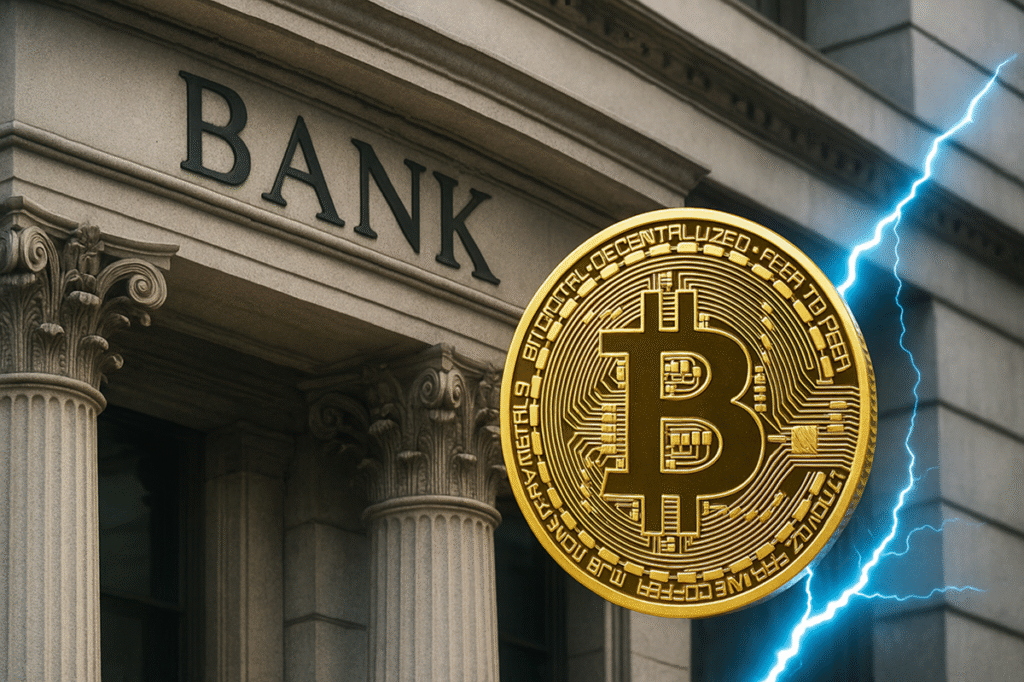The financial landscape is on the brink of a revolutionary transformation, with Bitcoin poised to reshape the way we perceive and conduct cross-border transactions. This innovative technology is at the forefront of a significant shift towards faster, cheaper, and more secure money transfers. As financial institutions increasingly adopt Bitcoin, the potential benefits for consumers are enormous. Join us as we delve into this emerging trend and its implications for the global financial ecosystem.
Revolutionizing Cross-Border Payments with Bitcoin: SoFi Pioneers the Change
SoFi: Leading the Charge as the First US Bank on Bitcoin Lightning
In a groundbreaking move, SoFi is set to introduce a Bitcoin-powered international money transfer service within its consumer app. According to Lightspark CEO David Marcus, this initiative marks SoFi as “the first US bank to use Bitcoin and Universal Money Addresses (UMA) to offer 24/7, real-time, affordable global payments.” The service leverages the Bitcoin Lightning Network for cross-border settlements and is scheduled to launch later this year, commencing with the Mexico corridor.
Announced on August 19, SoFi’s new service promises its members the ability to send money overseas directly from the SoFi app. This innovation significantly reduces fees and accelerates delivery compared to traditional remittance services. The technology operates by instantaneously converting dollars to Bitcoin, transmitting them over the Lightning Network, and reconverting them to the local currency at the destination. This seamless process eliminates the need for third-party applications and ensures transparency with upfront disclosure of exchange rates and fees. This feature, accessible via SoFi Checking & Savings, is offered by SoFi Bank, N.A., a Member FDIC, with an open waitlist for interested users.
Lightspark’s Marcus praised SoFi as a beacon of financial innovation in the US, highlighting the advantages of UMA, which is fast, cost-effective, and secure. SoFi CEO Anthony Noto emphasized the practical benefits for members who frequently send money internationally, underscoring the significant improvement in their financial lives due to reduced costs and increased speed of transactions.
Marcus also discussed the strategic benefits for banks using Bitcoin, noting its neutrality and decentralization as superior to traditional correspondent banking systems. This shift represents a significant milestone, as Bitcoin emerges as a preferred alternative due to its openness and lack of centralized control.
Global Adoption: A Broader Shift Towards Bitcoin and Lightning
SoFi’s initiative is part of a larger movement among major consumer platforms adopting Lightning-based settlements. Lightspark has announced partnerships aiming to introduce Lightning to the UK’s Revolut and Brazil’s Nubank, one of the largest digital banks worldwide, demonstrating a global expansion of the “open Money Grid.” SoFi’s US bank charter amplifies the significance of this rollout, highlighting its unique position in regulated banking.
While there may be debate over whether SoFi is the first US bank to integrate Lightning, Lightspark’s release acknowledges SoFi as “one of the first US banks to offer a blockchain-powered remittance service.” Marcus characterizes it as the pioneer in utilizing both Bitcoin and UMA for delivering uninterrupted, cost-effective global payments. The architecture—UMA for front-end addressing, Lightning for cross-border routing, fiat conversion, and competitive remittance costs within a mainstream banking app—remains undisputed.
At the time of reporting, Bitcoin was valued at $113,627.
“`html
FAQs about SoFi’s Bitcoin-Powered Money Transfer Service
How does SoFi’s new service benefit users compared to traditional remittance services?
SoFi’s Bitcoin-powered service offers significant advantages over traditional remittance methods. It primarily reduces costs and increases the speed of transactions by using the Bitcoin Lightning Network, allowing for seamless currency conversion and fast delivery directly from the SoFi app without third-party involvement.
What does the integration of Bitcoin Lightning mean for the future of banking?
The integration of Bitcoin Lightning into banking heralds a new era of speed, cost-efficiency, and security for cross-border payments. It challenges traditional banking practices, promoting decentralized and open financial systems that prioritize user convenience and transparency.
Why is SoFi’s initiative significant for the cryptocurrency market?
SoFi’s initiative is transformative for the cryptocurrency market as it legitimizes and demonstrates the practical use of Bitcoin in regulated banking environments. This move could prompt wider adoption across the banking sector, potentially leading to mainstream acceptance of cryptocurrencies as viable financial instruments.
“`
By understanding the intricacies of this forward-thinking financial approach, readers can better appreciate the potential for Bitcoin and other cryptocurrencies in reshaping the financial landscape. Through this exploration, SoFi’s pioneering efforts illuminate the path for future innovations in the realm of global monetary transactions.

